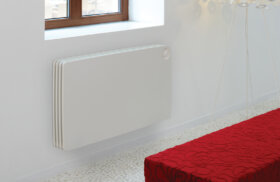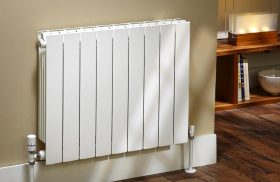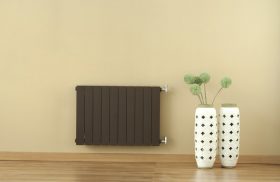It’s cold, so you turn the heating on, but instead of the reassuring sound of the gas boiler firing up, a light starts flashing, and up pops an error code instead.
Often, this is because there is either not enough or too much boiler pressure in the central heating system, but what does this mean exactly?
For hot water to circulate in your central heating system and provide warmth throughout the house, the boiler must produce the correct amount of pressure, and this is usually between 1 and 2 bar.
It is best to check with your boiler manufacturer or a Gas Safe registered engineer to see what your own boiler pressure should be.
Central heating works on a sealed, closed system so pressure is created when the water expands when heated, and the pressure reduces when the water contracts as it cools down.
Why does my boiler keep cutting out?
Boilers will generally cut out when the pressure is too high or too low. If it is too low, then the boiler turns off, meaning there will not be any hot water and the radiators will remain cold. If the pressure is too high, it puts too much pressure on the system and will cut out. Too much pressure could damage your boiler.
To check your boiler’s pressure, locate the pressure gauge on your boiler. If there is the correct amount of pressure in your system, the needle should be between 1 and 2 bar. This area is usually coloured in green. The critical zones, i.e. below 1 and higher than 2, are coloured in red.
What if the boiler pressure is too low?
If the boiler pressure falls below 1 bar, the pressure is too low, and the central heating system needs to be topped up by adding mains cold water using the external filling loop.
The steps to do this will vary from boiler to boiler so it’s best to consult the manual, the manufacturer or a Gas Safe registered engineer if you’re not sure.
You should only have to increase the boiler pressure once or twice a year but if your boiler keeps losing pressure, then there could be a problem with the pressure gauge or there could be a water leak. At this point, you definitely need to call out the engineer!
What if the boiler pressure is too high?
If the boiler pressure rises above 2 bar, you’ll need to release some of that pressure by bleeding some or all of your radiators until the pressure falls back into the green zone.
When the heating is on, the boiler pressure will increase slightly but should not go above 2 bar. If there is a jump in pressure, such as when you use the central heating at the same time as the hot water, then this increase should be quickly controlled by the pressure relief valve.
If the pressure stays above 2 bar for any length of time, there is likely to be a fault with the boiler – again you will need to call out the engineer!
It is a good idea to check the water pressure once a month to see if there are any fluctuations. The most important time to check is the autumn before the cold winter months set in, so any problems can be fixed before you need the heating on.





